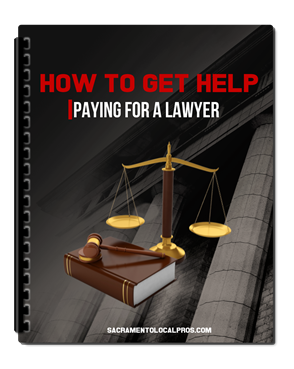Navigating the landscape of personal injury cases can be both intricate and misunderstood.
Many individuals find themselves entangled in myths and misconceptions that cloud their understanding of how these legal cases operate.
From the belief that all personal injury claims lead to court battles, to misconceptions about the time frames and compensation involved, these faulty notions can lead to significant missteps.
Equip yourself with the truth and avoid potential pitfalls by exploring the realities behind these common misunderstandings.
Understanding the true nature of personal injury cases is essential for making informed decisions.
Discover the facts as we unravel these misconceptions to provide clarity and confidence in handling your situation.
1)) Personal Injury Cases Are Always Frivolous
The notion that personal injury cases are always frivolous stems largely from high-profile cases that garner media attention due to their seemingly exaggerated claims.
However, the reality is that most personal injury cases are pursued because of genuine harm caused by negligence or misconduct.
The legal system provides a platform for individuals to seek compensation for injuries that have significantly impacted their lives, whether through physical incapacitation, emotional trauma, or financial loss.
Each case is meticulously evaluated based on its merits, with attorneys and courts requiring compelling evidence of wrongdoing or negligence before proceeding.
Dismissing all personal injury cases as frivolous overlooks the legitimate suffering and substantial evidence many plaintiffs present.
Recognizing the sincerity and seriousness of these cases is crucial in ensuring justice and empathy in the legal process.
2)) Insurance Will Cover All Damages Automatically
The expectation that insurance will automatically cover all damages in a personal injury case is a widespread misconception.
Insurance policies are subject to complex terms and conditions that determine the extent and limitations of coverage.
Many individuals are surprised to learn that insurance companies often prioritize minimizing payouts and scrutinizing claims to identify any inconsistencies or gaps.
This has led to instances where valid claims are only partially compensated, leaving victims to shoulder unexpected expenses.
Policyholders must provide detailed documentation and adhere to strict timelines to enhance their chances of receiving fair compensation.
Therefore, understanding the intricacies of your insurance policy and navigating the claims process with diligence can better ensure that your legitimate damages are adequately covered.
Recognizing these nuances is essential to prevent unwarranted financial burdens during recovery.
3)) You Must Go To Court To Receive Compensation
Contrary to the belief that you must go to court to receive compensation in a personal injury case, many claims are resolved through settlement negotiations outside the courtroom.
Many personal injury cases reach an agreement between the parties involved, allowing for compensation without a formal trial.
These settlements can be advantageous, offering a quicker and often less stressful resolution as opposed to enduring a protracted court process.
Skilled attorneys work to negotiate favorable terms, balancing the interests of the injured party with the realities of the financial and legal landscape.
By avoiding court proceedings, both sides can save on time and legal expenses, making settlements a pragmatic option for many.
Understanding this pathway allows individuals to pursue just compensation without the anxiety of an impending courtroom battle.
4)) Any Attorney Can Handle A Personal Injury Case
Choosing the right attorney for a personal injury case is crucial, yet there is a common misconception that any attorney can adeptly manage such cases.
In reality, personal injury law is a specialized field that requires not only legal expertise but also an in-depth understanding of medical records, insurance policies, and a keen ability to negotiate effectively with insurance companies.
An attorney experienced in personal injury cases will have the skills to build a strong case, ensuring that the client's rights are fully represented and that they receive the compensation they deserve.
Such attorneys are adept at navigating the legal complexities that often accompany personal injury claims, which can significantly influence the outcome.
Opting for a general practitioner without this specialized knowledge risks undermining the claim's strength, potentially affecting the compensation received.
Thus, choosing a lawyer with proven experience in personal injury law is vital to effectively advocate for your interests.
5)) Minor Injuries Aren't Eligible For Compensation
The assumption that minor injuries aren't eligible for compensation is a flawed perspective that overlooks the broader implications of personal injury law.
Even seemingly minor injuries can have significant consequences, affecting a person's ability to work, carry out daily activities, or maintain their quality of life.
The impact of these injuries can extend beyond the immediate physical discomfort, leading to long-term emotional stress and financial strain.
Personal injury law acknowledges that the severity of an injury is not solely determined by its initial impact but also by the resulting hardships experienced by the injured party.
By filing a claim, individuals can seek compensation for medical expenses, lost wages, and other related costs, ensuring they are not left uncompensated for the disruption in their lives.
It is important to recognize that injury claims are evaluated on their specific circumstances and not dismissed outright due to the perceived triviality of the injury.
6)) Personal Injury Claims Take Forever To Resolve
The notion that personal injury claims invariably take forever to resolve is misleading and not representative of all cases.
While some claims can become prolonged due to their complex nature or disputes over liability and damages, many are settled relatively quickly, especially when the parties are amenable to negotiation.
Advances in legal processes and technologies have facilitated streamlined communication and documentation, helping to expedite the resolution process.
With the aid of a proficient personal injury attorney, claimants can often navigate the obstacles efficiently, avoiding unnecessary delays.
Promptly gathering evidence and maintaining open communication with insurers also contribute to a swifter settlement.
Therefore, understanding the various factors influencing the duration of a claim can illuminate opportunities for a timely resolution, dispelling the myth that all personal injury claims are destined for drawn-out proceedings.
7)) You Can File A Claim Whenever You Want
The belief that you can file a personal injury claim at any time is a misunderstanding of how legal timelines function.
In reality, each jurisdiction sets specific statutes of limitations that dictate the permissible time frame within which a claim can be filed.
These statutes are implemented to ensure that cases are addressed while evidence is still fresh and that both parties can recall details accurately.
Delaying the filing of a claim can jeopardize an individual's ability to seek compensation, as missing the deadline typically results in the forfeiture of the right to sue.
Understanding the applicable statute of limitations is essential for the effective pursuit of any personal injury claim and underscores the importance of prompt legal consultation.
By acknowledging these deadlines, individuals can better safeguard their right to compensation and avoid the pitfalls of untimely legal action.
8)) Personal Injury Lawsuits Are An Easy Way To Make Money
The perception that personal injury lawsuits are an easy way to make money fails to account for the complexities and challenges inherent in the legal process.
Successfully obtaining compensation through a personal injury lawsuit involves a thorough investigation, substantiated evidence, and often expert testimony to establish liability and the extent of damages.
Plaintiffs bear the burden of proving that their injuries were directly caused by another party's negligence or intentional harm, a task that requires meticulous legal preparation and representation.
Moreover, even if a plaintiff wins their case, the financial rewards are rarely as substantial as popular myths suggest, with settlements frequently covering only medical bills, lost wages, and other related expenses.
This myth belies the reality that personal injury lawsuits are intricate proceedings aimed at restitution rather than a straightforward path to financial gain.
9)) Listing More Injuries Will Yield A Higher Compensation
The assumption that listing more injuries will automatically yield a higher compensation in a personal injury claim is misleading.
Compensation is primarily determined by the authenticity and severity of each injury, rather than the quantity of injuries reported.
Legal professionals meticulously evaluate the legitimacy of each claim to ensure that the compensation awarded reflects the true impact on the claimant’s life.
Frivolously exaggerating or listing minor ailments without substantial evidence can undermine the credibility of the case, potentially leading to a denial of compensation.
Insurance companies and legal experts are adept at identifying inconsistencies or fraudulent claims, and such tactics can damage the claimant's reputation.
In truth, a well-documented and genuinely substantiated case will garner rightful compensation, emphasizing the importance of transparency and honesty in the claims process.
10)) You Can Handle A Personal Injury Case Without A Lawyer
While it may be tempting to handle a personal injury case without a lawyer in the interest of saving money, doing so often overlooks the complexities involved in navigating legal proceedings.
Personal injury law encompasses a myriad of regulations and procedures which can be daunting for those inexperienced in the legal field.
A skilled attorney brings valuable expertise in gathering evidence, negotiating with insurance companies, and understanding the nuances of personal injury law, all of which are crucial for a successful outcome.
Legal representation can significantly increase the chances of securing fair compensation, covering more than just immediate out-of-pocket expenses.
Many people find they can avoid critical errors and unnecessary stress by seeking professional legal assistance, achieving a more favorable resolution.
11)) All Personal Injury Cases End In Large Settlements
The belief that all personal injury cases end in large settlements is a common misconception that oversimplifies the reality of legal outcomes.
The truth is that settlement amounts depend heavily on the specifics of each case, including the nature and severity of the injuries, the clarity of liability, and the impact on the plaintiff's life.
Many cases result in moderate settlements or even dismissal if the evidence is insufficient or if liability cannot be established.
Factors such as legal costs, the defendant's financial resources, and policy limits of applicable insurance also play significant roles in determining settlement values.
Therefore, while some high-profile cases do result in substantial settlements, they are exceptions rather than the rule.
Understanding this variability can help manage expectations and encourage a more realistic approach to personal injury claims, highlighting that adequate compensation, rather than a large windfall, is the true goal.
12)) Signing A Settlement Agreement Is Always Beneficial
A settlement agreement in a personal injury case is often presented as a swift resolution, but believing that signing one is always beneficial can be misleading.
While settlements provide certainty and immediate financial relief by avoiding protracted litigation, they may not always reflect the true value of a claim.
Accepting an initial offer without the guidance of legal counsel can result in the forfeiture of rightful compensation for future medical expenses or ongoing rehabilitation needs.
Once an agreement is signed, the claimant waives their right to seek further legal recourse, which could be detrimental if hidden injuries or complications arise later.
Thus, plaintiffs must weigh the pros and cons carefully and seek legal advice to ensure that any agreement aligns with their best interests, guiding them to a decision that is both informed and advantageous.
13)) Personal Injury Claims Are Only For Physical Injuries
The misconception that personal injury claims can only be filed for physical injuries fails to recognize the broader spectrum of damages recognized by the legal system.
Personal injury law encompasses various non-physical injuries, such as emotional distress, mental anguish, and loss of quality of life, that can significantly impact a victim's well-being.
Psychological trauma following an accident can be as debilitating as a physical injury and may require extensive therapy and time off work.
Furthermore, cases involving defamation or invasion of privacy also fall under the purview of personal injury claims.
Claimants need to understand that the law provides avenues for seeking compensation for both tangible and intangible damages.
Recognizing the validity of non-physical injuries ensures a comprehensive approach to personal injury claims, underscoring the importance of acknowledging and addressing all aspects of harm suffered by the victim.
14)) It's Too Expensive To Hire A Personal Injury Lawyer
The notion that hiring a personal injury lawyer is prohibitively expensive is a deterrent for many potential claimants, yet this belief often overlooks the financial structure of these legal services.
Most personal injury attorneys operate on a contingency fee basis, which means they only receive payment if the client wins the case or receives a settlement.
This arrangement aligns the lawyer's incentives with the client's interests and makes legal representation accessible regardless of one's financial situation.
An experienced lawyer can help maximize the compensation received by effectively negotiating with insurance companies and identifying all available avenues for recovery, potentially outweighing any costs incurred.
Many individuals find that the expertise and increased chances of a favorable outcome provided by professional representation justify the expenses involved.
Hence, rather than being a financial burden, hiring a personal injury lawyer can be a prudent investment in securing just compensation.
15)) Winning A Personal Injury Case Is Guaranteed If You're Injured
The assumption that being injured guarantees winning a personal injury case is a frequent misconception that doesn't account for the complexities of legal proceedings.
Success in such cases relies not only on demonstrating the existence of an injury but also on proving liability, causation, and damages.
The injured party must establish that another party's negligence or intentional act directly caused their injury, which often involves gathering substantial evidence, expert testimonies, and navigating intricate legal frameworks.
Defendants can contest claims by arguing pre-existing conditions or lack of clear fault, further complicating the process.
Factors like jurisdictional laws and the nuances of insurance policies can influence the case's outcome.
Claimants must be prepared for potential hurdles and understand that achieving a successful resolution requires diligence, comprehensive legal strategy, and often professional legal assistance.
Thus, while being injured is a critical component of a personal injury claim, it is not a standalone guarantee of victory.
Conclusion
Navigating the realm of personal injury claims involves a nuanced understanding that extends beyond common misconceptions.
By recognizing the complexities of settlement agreements, the legitimacy of non-physical injuries, the affordability of legal representation, and the intricacies of proving a case, individuals are better equipped to pursue their rightful claims.
Demystifying these myths conveys the importance of informed decision-making and underscores the benefits of seeking expert legal counsel.
Embracing a well-rounded perspective empowers claimants to advocate for their rights effectively and attain fair compensation in a challenging legal landscape.
Download Our Free E-book!







